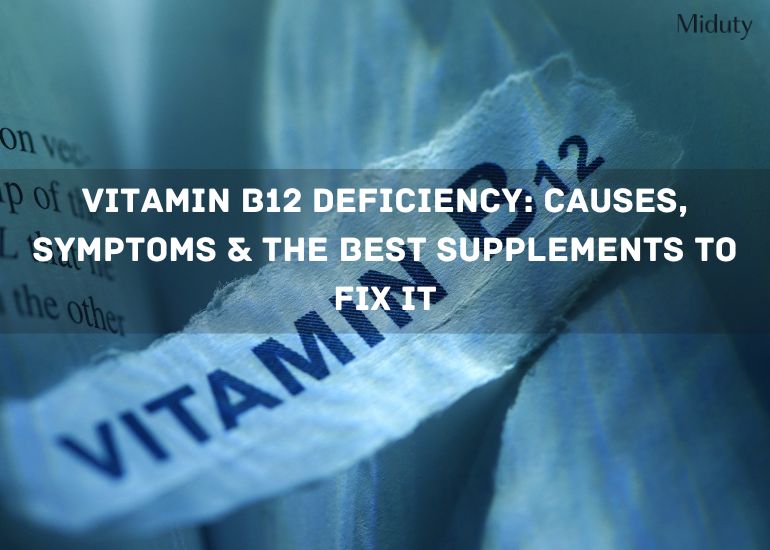
Research-Backed Fatty Liver Remedies You Should Know About
Top Home Remedies | Low Carb Diet | Intermittent Fasting | Gut Health | Control Cholesterol | Avoid Refined oil | Liver Supplements | Conclusion | Faq's | References

In today's world, our liver is under relentless assault. From processed foods and environmental toxins to chronic stress, this unsung hero of our body has its work cut out.
As we grapple with the rising tide of fatty liver disease, many of us are on the lookout for quick-fix home remedies. However, in our haste for easy solutions, we often overlook scientifically proven methods that could offer real, lasting benefits.
Instead of chasing the latest fad or relying on dubious detoxes, it's crucial to focus on strategies backed by solid research. This blog is here to guide you through effective, evidence-based remedies that can genuinely support your liver health.
Forget the gimmicks and get ready to discover practical, research-based strategies that can make a real difference. Let's unravel how you can take charge of your liver health with proven methods that go beyond the hype.
What are the Top Research Based Fatty Liver Home Remedies?

Home remedies for fatty liver focus on lifestyle and dietary changes that can support liver health and reduce fat buildup. These simple adjustments can significantly improve liver function and aid in managing fatty liver disease.
1. Low Carb Diet
A low-carb diet helps reduce fatty liver by lowering insulin levels and decreasing fat storage in the liver. Excess carbohydrates, especially refined sugars and starches present in processed foods like pasta pastries, and fried potatoes, can lead to increased fat accumulation. By minimizing carb intake, you reduce the liver's fat burden and improve overall liver function.
Recent research shows that low-carb diets significantly reduce liver fat and improve liver enzymes in individuals with fatty liver disease. [1] It also marks improvements in liver health markers and reduced inflammation with low-carb eating patterns.
In a low-carb diet, focus on consuming non-starchy vegetables, leafy greens, lean proteins like chicken, fish, and eggs, as well as healthy fats from sources like avocados, nuts, and olive oil.
2. Intermittent Fasting
Intermittent fasting involves cycling between eating and fasting periods. It promotes fat burning and helps the liver process and eliminate stored fat more effectively by giving it time to rest and regenerate.
Studies indicate that intermittent fasting improves liver health by reducing fat accumulation, enhancing insulin sensitivity, and decreasing liver inflammation. [2] Further research supports its effectiveness in managing fatty liver disease and improving metabolic markers.
You can also watch the detailed video on Intermittent Fasting here:
Lose Weight with Intermittent Fasting | Know Other Benefits of Intermittent Fasting
You can try the 16/8 Method: Fast for 16 hours, and eat within an 8-hour window.
If you want to find out what to eat during intermittent fasting, you can download the free intermittent fasting diet plan here.
3. Work on Gut Health

Your gut health plays a crucial role in managing liver fat due to the gut-liver axis-a connection between your digestive system and liver. When gut flora is imbalanced, it can lead to inflammation and increased fat in the liver.
Research highlights that improving gut health through probiotics and prebiotics can support liver function and reduce fatty liver. [3]
To boost gut health, include fiber-rich foods like green leafy vegetables, fermented foods like yogurt, kombucha, and kimchi, dosa, idli, manage stress and stay hydrated to keep your digestive system healthy.
Also Read:
1. Can Alcoholic Fatty Liver Be Reversed? - Stages, Symptoms, Treatment, Diet and Prevention
2. 21-Day Fatty Liver Diet Plan - What to Eat and What to Avoid?
3. Managing Nonalcoholic Fatty Liver Disease: Science-Backed Treatment and Tips
4. Control Your Cholesterol
Managing high cholesterol is important for liver health, as elevated cholesterol levels can contribute to fatty liver disease. High cholesterol exacerbates fat buildup in the liver, so controlling cholesterol through diet and lifestyle is crucial.
Studies show that lowering cholesterol can improve liver health and reduce fat accumulation. To manage cholesterol, eat heart-healthy fats found in avocados and nuts and seeds, desi ghee and butter avoid saturated fats found in processed foods such as pizzas, burgers, and more, exercise regularly, and monitor your cholesterol levels. Saturated fats can raise cholesterol levels in your blood, so it's best to eat them in moderation. [4]
Making these changes can support liver function and help prevent the progression of fatty liver disease.
5. Avoid Refined Oil
Avoiding refined seed oils is crucial when addressing fatty liver, as these oils are typically high in omega-6 fatty acids, which can promote inflammation and exacerbate liver fat buildup.
Regular consumption of refined seed oils like soybean, corn, and sunflower oil can lead to an imbalance in the body's fatty acid ratio, worsening liver health. [5]
A healthier alternative is extra virgin olive oil, which is rich in healthy fats and powerful antioxidants. Olive oil has been shown to reduce liver fat and support overall liver function, making it an excellent choice for anyone looking to improve liver health and prevent further damage.
However, it is important not to cook with olive oil at high temperatures, as this can degrade its beneficial compounds. Instead, use olive oil as a finishing touch over salads, and vegetables, or drizzle it on dishes after cooking to preserve its health benefits and rich flavor.
6. Liver Friendly Supplements
While the above-mentioned home remedies can help manage fatty liver, adding supplements can significantly enhance your fight against this condition.
Certain supplements can support liver health and aid in managing fatty liver disease. A supplement containing both milk thistle and N-acetylcysteine (NAC) is highly effective and the best option for reversing fatty liver.
Milk thistle, particularly its active ingredient silymarin, is known for its liver-protective properties. It helps reduce inflammation and supports liver cell regeneration. [6]
Research backs its effectiveness, and taking milk thistle as a supplement can be beneficial, but it's important to follow recommended dosages.
N-acetylcysteine (NAC) is another valuable supplement, known for its antioxidant properties that help with liver detoxification and combat oxidative damage. [7]
NAC helps in the production of glutathione, a critical antioxidant for liver health. Studies show that NAC can improve liver function and reduce fat buildup, making it a useful addition to your regimen.
Prebiotics and probiotics play a vital role in managing fatty liver by promoting gut health and reducing inflammation. Prebiotics, found in foods like garlic, onions, and bananas, serve as food for beneficial gut bacteria, while probiotics, present in fermented foods like yogurt and kimchi, introduce live beneficial bacteria that enhance gut flora balance.
Together, they improve metabolic function, support liver detoxification, and reduce the risk of inflammation. In many cases, a prebiotic and probiotic supplement may be necessary to ensure adequate intake and support a healthy gut microbiome, ultimately contributing to improved liver health and metabolic processes.
Also Read:
1. Everything You Need to Know About Fatty Liver Disease
2. The Ultimate Expert Advice for Managing Grade 1 Fatty Liver
3. How to Manage Fatty Liver Grade 2?: Symptoms, Medications, and Lifestyle Tips
4. All About Fatty Liver Grade 3: Symptoms, Causes, Treatment & More
Conclusion
In conclusion, protecting your liver from the challenges of modern life requires more than just quick fixes or trendy diets. By focusing on scientifically-backed strategies like a low-carb diet, intermittent fasting, improving gut health, controlling cholesterol, and avoiding refined seed oils, you can make significant strides in managing fatty liver disease.
Additionally, supplementing with liver-friendly options like milk thistle and N-acetylcysteine can further support your efforts. Prioritizing these proven remedies over fads will empower you to take control of your liver health and promote long-term well-being. Your liver works hard for you-now it's time to return the favor.

Frequently Asked Questions (FAQs)
Q1 - Can home remedies effectively treat fatty liver disease?
Home remedies can help manage and improve fatty liver disease, especially when combined with lifestyle changes like a healthy diet, regular exercise, and liver-friendly supplements. However, they should complement, not replace, medical advice and treatment.
Q2 - Are there any specific foods I should avoid if I have fatty liver disease?
Yes, it's advisable to avoid foods high in saturated fats, refined sugars, and processed foods. This includes items like fast food, sugary drinks, and baked goods made with white flour. Instead, focus on whole foods, lean proteins, and healthy fats.
Q3 - Can increasing fiber intake help with fatty liver?
Yes, increasing fiber intake can aid in managing fatty liver disease. Fiber helps regulate blood sugar levels and reduces fat absorption, which can help lower liver fat.

References








